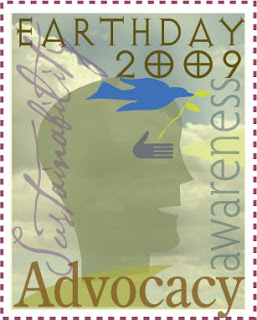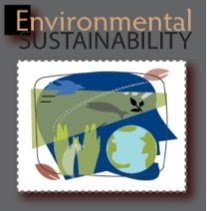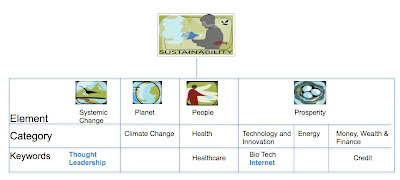
Sometimes I write something that I publish in my other blog, Digital Savvy, and this blog. Increasingly I find myself addressing marketing folks about becoming advocates and in this article, going so far as to drop the language of brand and branding.
This all started as a post I made to a blog I was unfamiliar with, The Idea, by Brian Creath. I had clicked through to Mr. Creath’s blog via a reference to his being upset with Jonathan Baskin’s book,
Branding Only Works on Cattle.
So here is a call to arms. It’s an ode to advocacy, to Earth, and EarthDay.
Before Brand
I guess it may be difficult for some to imagine a time before the word, branding, was used in marketing. I’m not talking the middle ages, but a scant twenty years or so when people bought products and trusted companies who built reputations, good ones. Back then there was talk of name awareness when agencies had people at the helm who put their names on their work and represented their clients: before JWT and WPP. Name awareness was measured and top of mind was a value reflected in sales. Emotions were NOT called in to play as a substitute for product features and benefits, many of which were, and still are, unsustainable.
Sir Martin Sorrell, CEO of WPP noted in a letter in their Social Responsibility report: “So if the marketing industry has been unwittingly complicit in causing the problem (build-up of greenhouse gases in the atmosphere), it’s now confronted with an historic opportunity: to shape and encourage consumer demand for sustainable products and lifestyles; to restore the true value of durability; to reject the superfluous in products and packaging; to make much of what has passed for fashion deeply unfashionable…”
Branding Unsustainable Products
What I think is that brand and branding was used in the service of so many unsustainable products and services with too many disreputable companies across a wide range of unsustainable industries that it may be viewed as a cover-up as a noun and covering up as a verb.
The language of brands is rife with what the late George Carlin called a soft language and said, “I don’t like words that hide the truth. I don’t like words that conceal reality…” My sense is that a good portion of consumers, especially younger ones, don’t like them either.
Authentic Brands
Maybe we have just come around a corner, with three of the top four advertisers in Internet advertising suffering mightily – retail, automotive and financial services – where we can start to address authenticity, reputation and, as a tip of the hat to Mr. Carlin, reality for the emerging and sustainable business landscape. It is not just coincidental that what we hear today is all about the lack of trust and confidence among our citizens towards a significant number of our business leaders and their companies as it is proof positive that these these two values are crucial to sales.
Jonathan Baskin
I recently heard Mr. Baskin speak at a meeting of the Luxury Marketing Council here in San Francisco. I wrote afterwards and repeat now, this is a great book to read and send to your clients who need to challenge themselves to thinking about a world without branding. Three years ago I recommended not using the word, brand, for a whole week, substituting instead “reputation” to shift perceptions. Give it a try.
I think Mr. Baskin is being provocative and challenging the status quo. And, for my money, it’s about time. Glen Urban, an MIT professor, wrote a book four years ago entitled, “Don’t Just Relate -Advocate,” and that’s what Mr. Baskin is doing. And I admire him for it.
Steering the Conversation Forward
He’s getting attention and challenging us to meet the historic opportunity referenced by Sir Sorrell and steer the conversation towards how we are going to do that and not use the tainted language of branding. Let’s jump on it. Our scientists are telling us we are running out of time.





